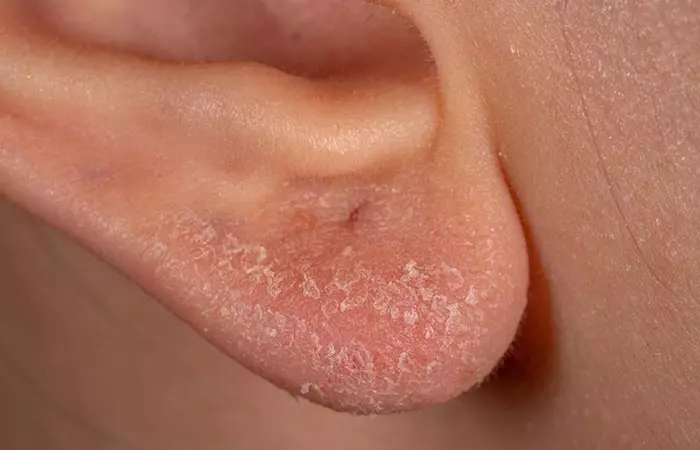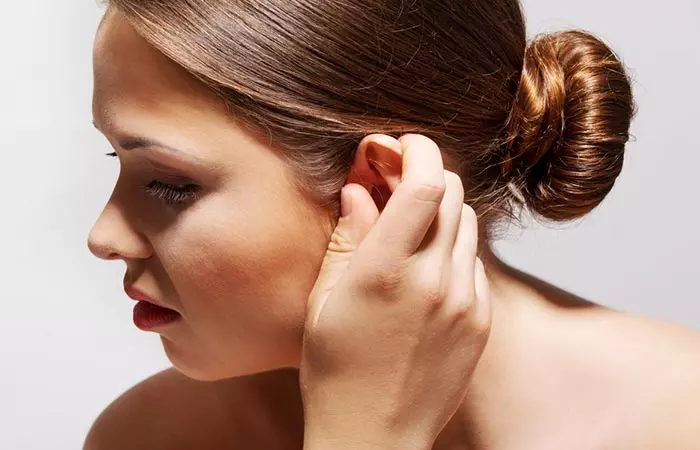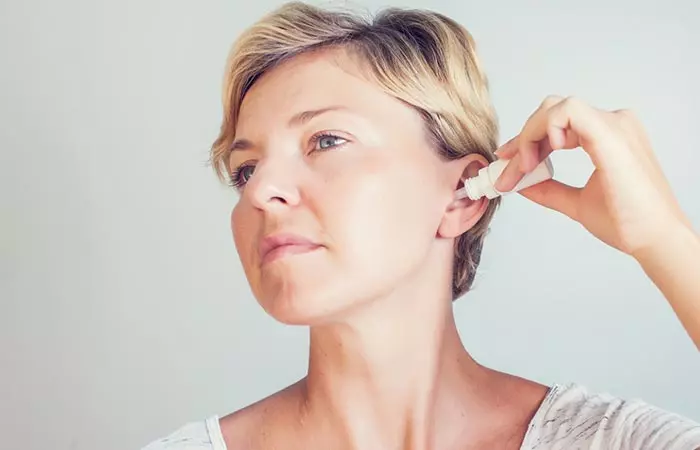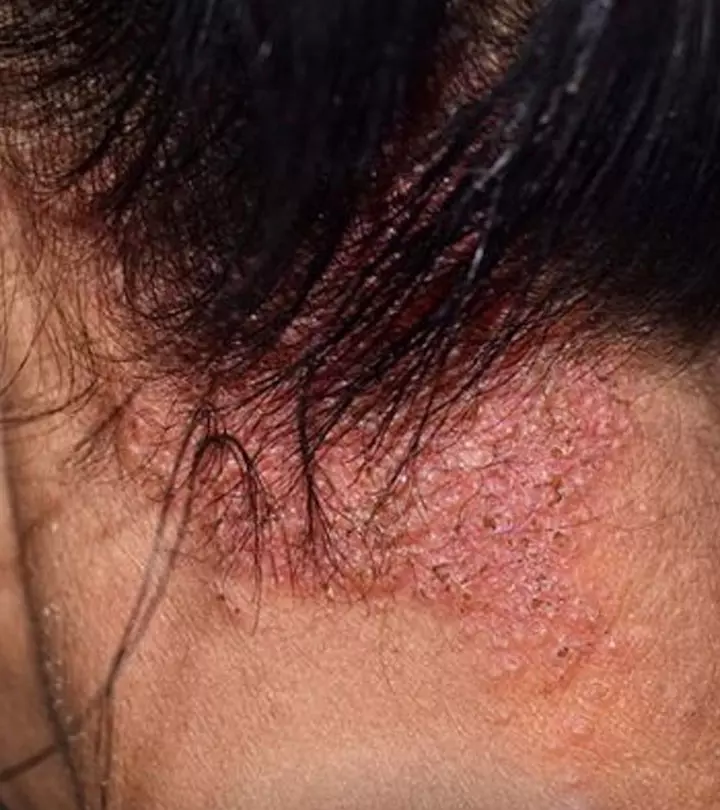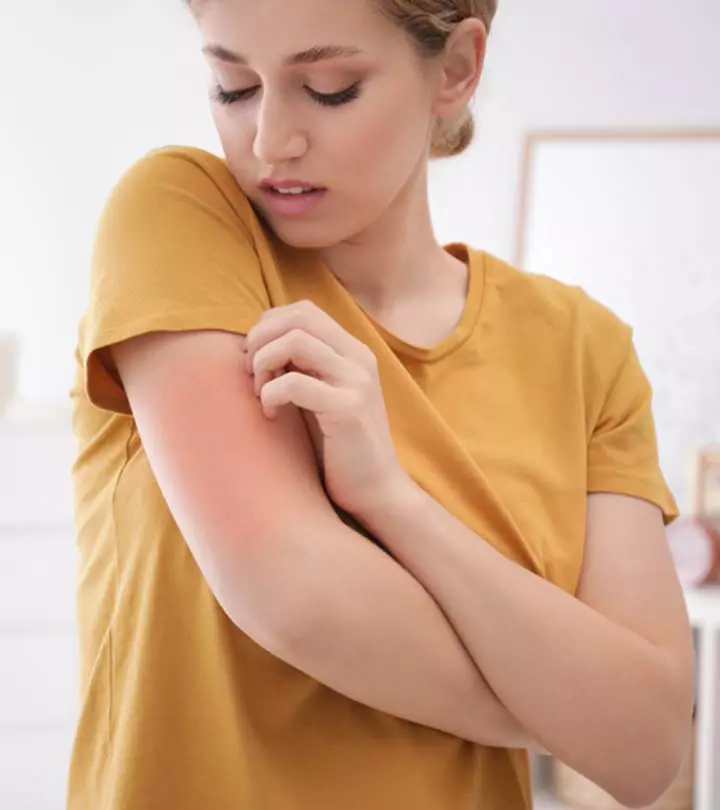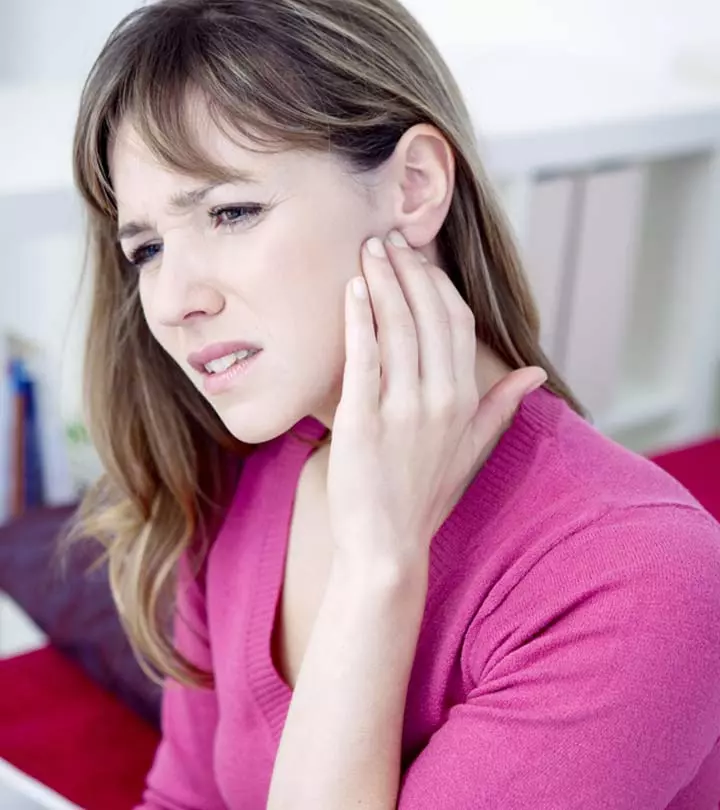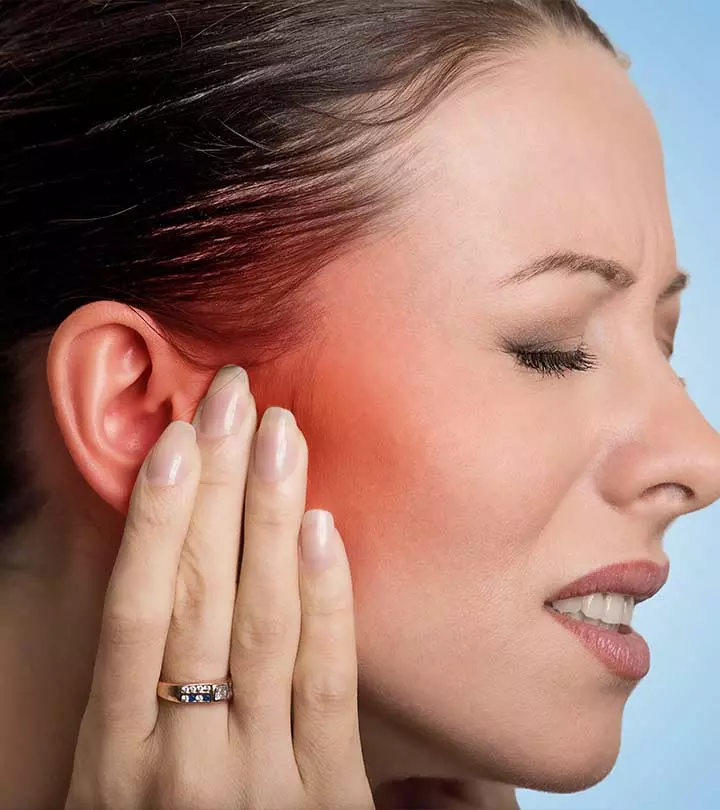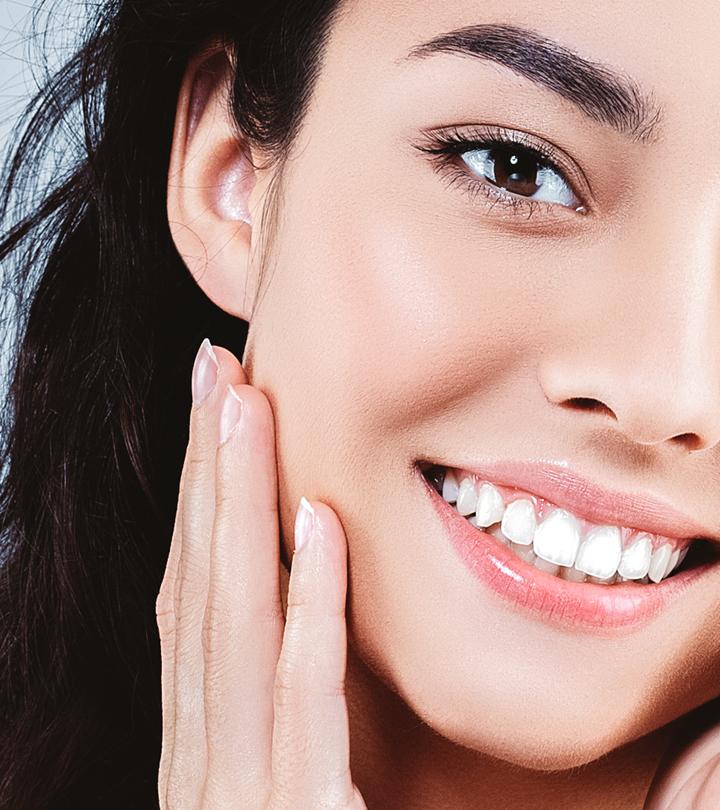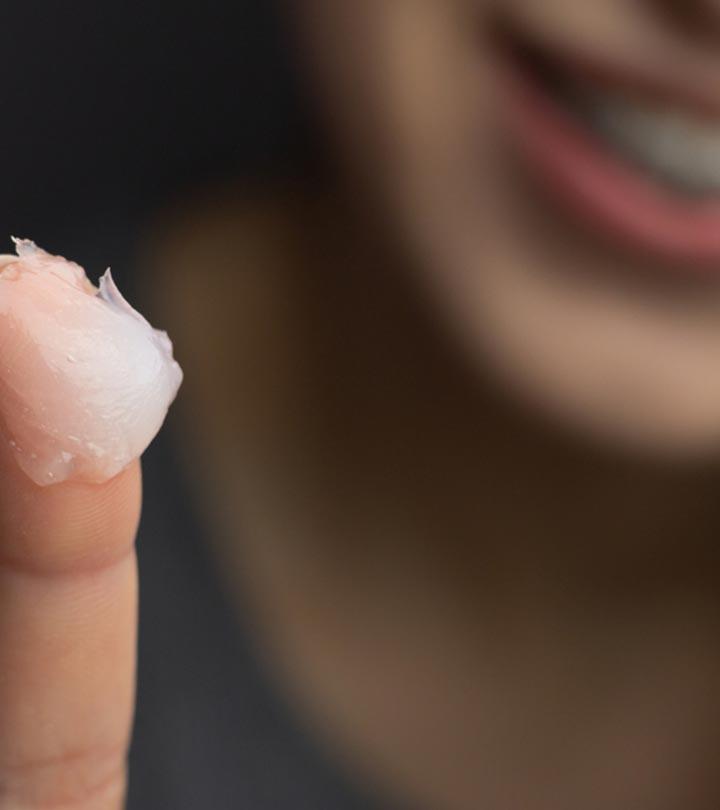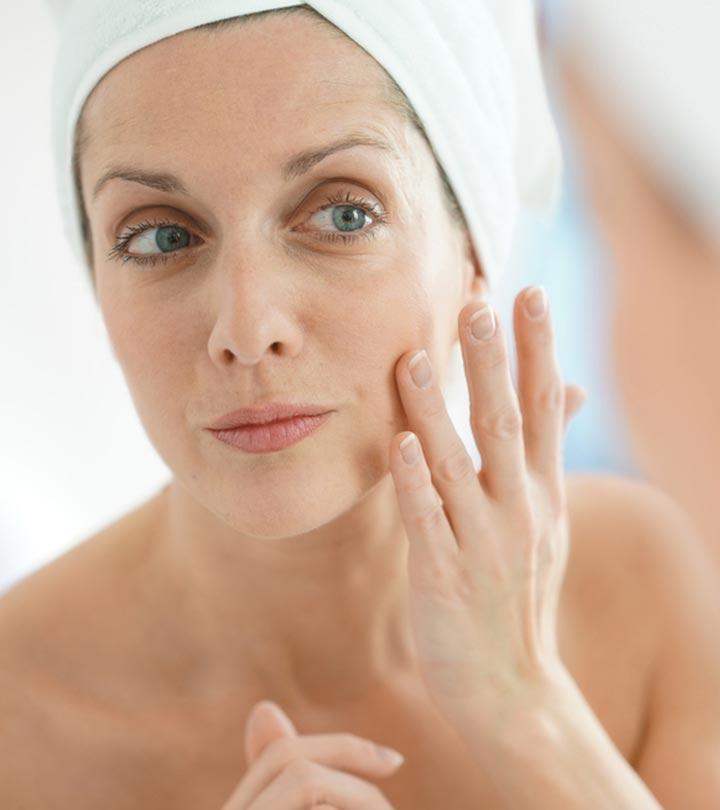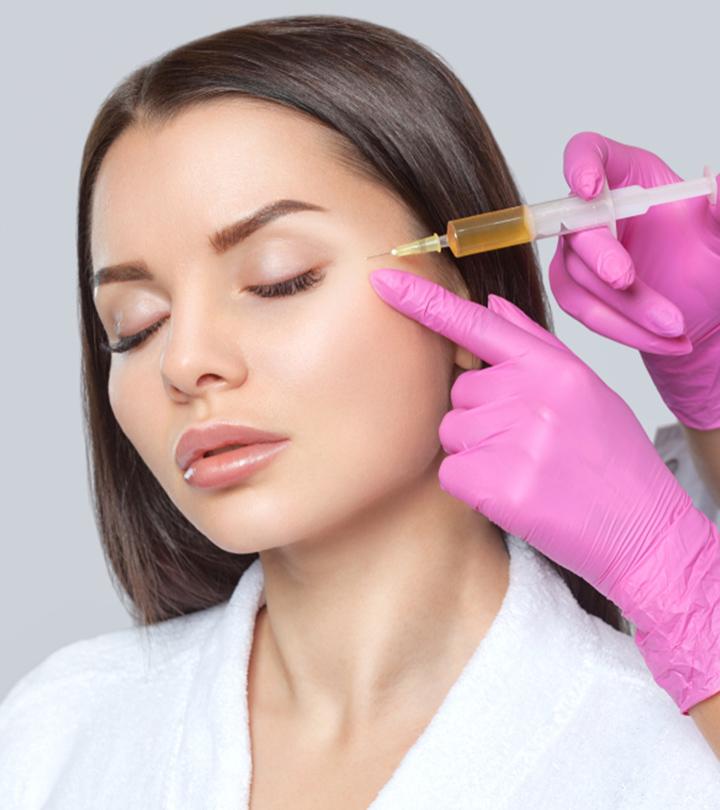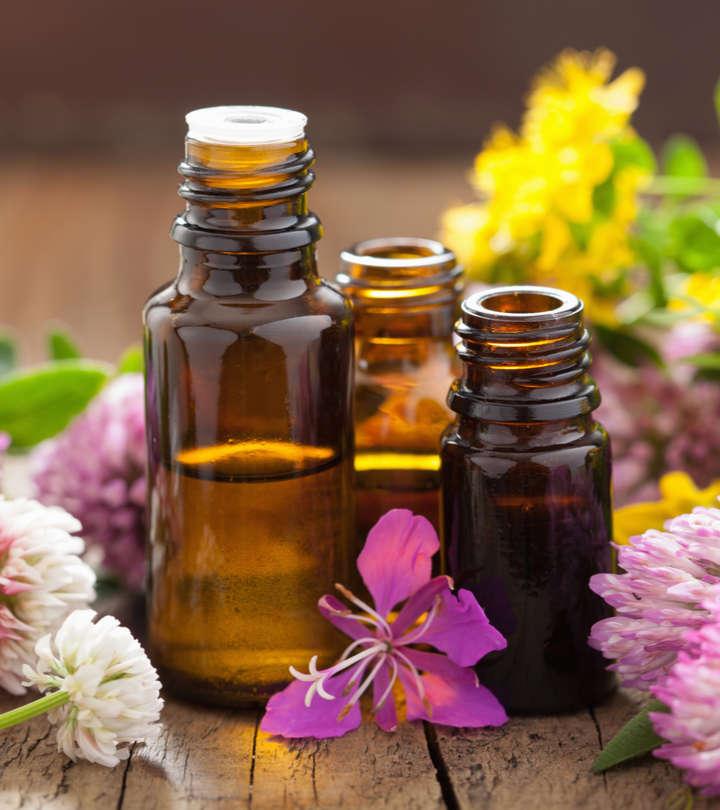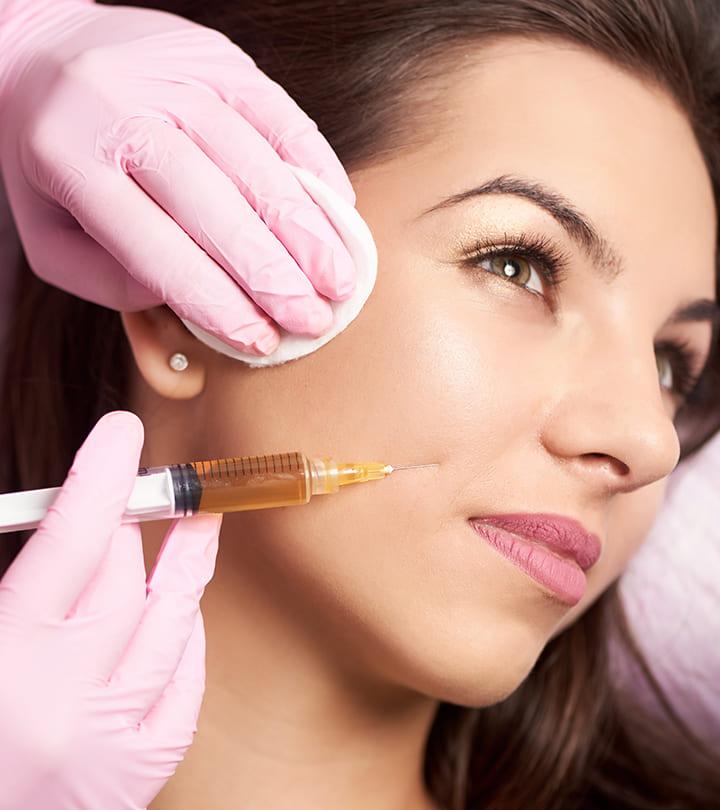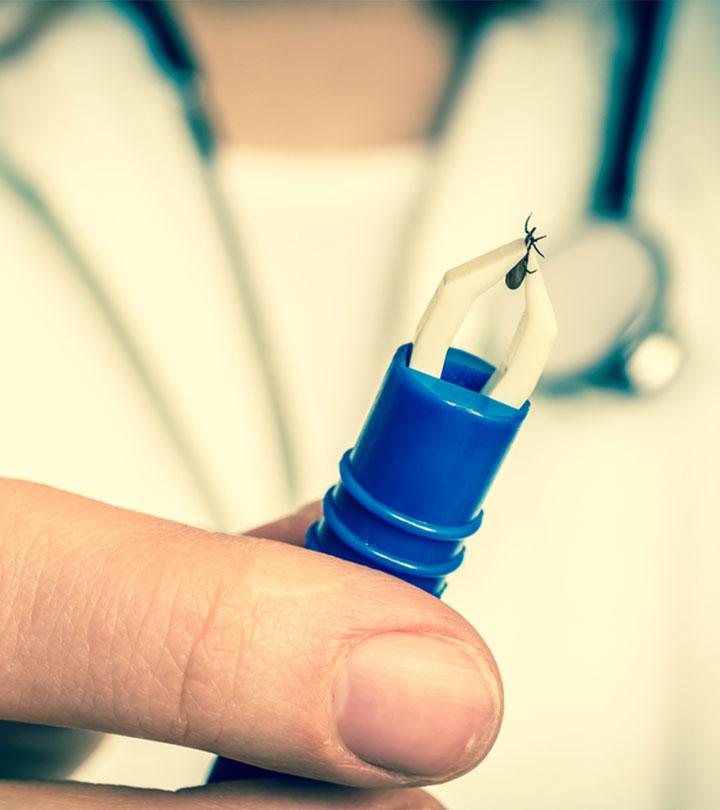What Causes Dry Skin In Ears? 8 Home Remedies & Prevention
Coconut oil and aloe vera are a few ingredients that can help manage the dry skin in your ears.

Image: Shutterstock
Flaky and dry skin in the ears can be irritating. Multiple factors can lead to this problem, including harsh weather, environmental irritants, chronic skin conditions and dryness. Dryness in and around the ears may also indicate skin allergy and chronic inflammatory skin conditions. In severe cases, the dry skin may crack, bleed, and ooze pus.
Understanding the exact reason for the condition is the first step to treating it. This article discusses the causes of dry skin in the ears, the signs and symptoms, home remedies you may try, and prevention tips. Keep reading.
In This Article
What Is Dry Skin In Ears?
It is a condition characterized by itchy, red, and flaky skin in the ears due to various environmental factors or chronic skin disorders. The skin around the ears may also get infected in extreme situations. Some individuals frequently clean earwax buildup, and this habit of constant cleaning can lead to dry and flaky skin in the ear.
Let us look at the most common symptoms of this skin condition in the following section.
Signs And Symptoms Of Dry Skin In Ears
- Scaly, flaky, and crusty skin
- Redness and swelling
- Itchiness
- Oozing of blood, fluid, or pus
Some of these symptoms can be painful and irritating. But understanding their causes can help you find the right course of treatment. If you experience these symptoms, it may be useful to consult your doctor.
What Causes Dry Skin In Your Ears?
Factors that possibly cause dry skin in your ears include:
- Extreme weather conditions
- Allergic reactions, such as to metals (especially nickel) in earrings
- Dehydration
- Use of harsh soaps and cleaners
- Use of perfumes
- Laundry detergents
- Makeup
- Hot baths
- Smoking
- Swimming in a chlorinated pool
- Sun exposure
- Stress
- Aging
Your ears may also turn dry if you have the following chronic skin conditions:
- Psoriasis
Psoriasis causes red, scaly patches on the skin and can occur in the ear canal, behind the ear, or around the ear. It causes itching and may discolor the skin. Scaling can accumulate and obstruct the ear canal, which may result in temporary hearing problems. Avoid inserting things (even your fingers) into your ear canal to prevent scales from moving farther into your ear. Avoid scratching or picking at the ear, which can cause infections. Consult an ear specialist if your ear canal gets blocked (1).
American Academy of Dermatology released data about how it can occur in individuals of all age groups and is most commonly seen in adults, with the highest proportion found among those aged 45 to 64. Among those affected, approximately 80% have mild to moderate psoriasis, while the remaining 20% have moderate to severe psoriasis that covers more than 5% of their body surface area. The most frequently observed form of psoriasis is plaque psoriasis, accounting for about 80 to 90% of cases.
- Eczema (Atopic Dermatitis)
It is a set of conditions that cause dry, scaly, itchy, or irritated skin. It can affect any part of the body, including the ears. Ear eczema can flare up unexpectedly. Contact with irritants like artificial fragrances, soaps, shampoos, hair colors, or metal jewelry may also cause this condition (2),(3).
This graph from a study published in Plos One shows the mean annual percentage of people with atopic dermatitis across different age groups. The condition was mildly severe in a majority of people with atopic dermatitis. The condition was prevalent among 92.5% of children, 77.1% adults, and 65.2% older adults. By the end of the follow-up period, the condition was moderate in 46.2% of older adults and severe in 5.2% older adults.
Prevalence Of Eczema In Older Adults In The UK
Source: The epidemiology of atopic dermatitis in older adults: A population-based study in the United Kingdom Did You Know?
Did You Know?- Seborrheic Dermatitis (Ear Dandruff)
It is a type of dermatitis that affects the upper layers of the skin, resulting in red, itchy skin that sheds scales. It can also be hereditary. Moreover, hormonal changes and cold weather conditions may worsen the condition further (4).
Well, here is some good news for you. You can manage dry skin in the ears naturally at home. Find out how in the next section.
Best Home Remedies To Treat Dry Skin In Ears
1. Coconut Oil
Coconut oil is an amazing moisturizer for dry, flaky skin. It keeps your skin hydrated and prevents water loss in addition to having antiseptic properties. Furthermore, virgin coconut oil was found to be better than mineral oil in improving dry skin among mild and moderate cases of atopic dermatitis (5). However, more studies are warranted to understand the benefit of coconut oil and severe or prolonged problems should always be seen by a doctor.
How To Use?
- Rub 1 to 2 drops of coconut oil between your palms to warm it up a little.
- Gently massage it on the affected areas before going to bed.
2. Honey
Honey is rich in vitamins and has antioxidant, anti-inflammatory, antimicrobial, and antibacterial properties. It is used in traditional medicine to treat wounds, eczema, and inflammation. Moreover, it can be applied to the skin directly (6). Though it has not been extensively studied as a treatment for chronic ear infections, it can help with eczema.
How To Use?
- Apply raw honey to the affected area.
- Wash it off after half an hour.
- Repeat twice a day.
3. Aloe Vera
Aloe vera has anti-inflammatory, antimicrobial, and wound-healing properties. It helps soothe the skin and prevents further irritation when applied every day (7). Besides, aloe vera has traditionally been used to treat burns and wounds.
How To Use?
- Apply pure aloe vera gel to the affected area.
- Allow it to absorb into your skin.
- Repeat every day to see if it improves your symptoms.
4. Yogurt
Yogurt contains lactic acid, which exfoliates the skin and is a great moisturizer (8). Studies suggest that yogurt masks may hydrate skin better and make it more supple and radiant (9). Use yogurt with sugar (to remove flakiness) and honey (to moisturize the skin).
How To Use?
- Mix ¼ cup plain yogurt and two teaspoons of honey in a bowl.
- Add three tablespoons of granulated sugar. Mix.
- Apply this scrub to the affected area and massage for a few minutes.
- Leave the scrub on for 5 to 6 minutes and rinse with cold water.
- Repeat once a week.
5. Mustard Oil
Mustard oil is used to treat dry and itchy skin in Ayurveda (10). It is said to heal rashes and allergies besides promoting skin health. However, there is no scientific evidence to back this claim.
How To Use?
- Rub 1 to 2 drops of mustard oil between your palms.
- Apply it to the dry patches or the affected areas.
- Leave it on overnight.
6. Tea Tree Oil
Tea tree oil was shown to treat dry skin by reducing itching and inflammation. Besides, its anti-inflammatory characteristics may also help treat eczema (11),(12).
How To Use
- Mix a few drops of tea tree oil with a small amount of carrier oil.
- Apply this mixture to the affected area immediately after you shower.
7. Turmeric
Turmeric relieves skin dryness. Its key component, curcumin, has anti-inflammatory and antioxidant properties. Besides, studies suggest that turmeric may help treat psoriasis, atopic dermatitis, and other dry skin disorders (13), (14).
How To Use
- Mix ¼teaspoon of turmeric powder, a tablespoon of milk cream, and a teaspoon of honey.
- Apply to the affected area.
- Rinse off with warm water after 15 minutes.
8. Neem Leaves
In traditional medicine, neem leaves are thought to treat eczema, psoriasis, and acne. They are rich in antioxidants and boost immune response in the tissues of the affected skin area. Neem is also known for its antibacterial, antifungal, and anticancer properties (15).
How To Use
- Mix two teaspoons of neem leaves powder with a teaspoon of honey and a pinch of turmeric powder.
- Add water to get a smooth paste.
- Apply the mixture to the affected area and let it dry for 10 to 12 minutes.
- Rinse off with water.
- Apply this mixture once every 4 to 5 days.
Note: Discontinue using these remedies immediately if you experience any allergic reaction like continuous burning, rash, or increased redness.
Following some simple tips can help prevent dry skin in ears. Keep scrolling to know them.
Tips To Prevent Dry Skin In Ears
- Keep your ears clean and dry. Wash them every day.
- Use mild soaps and cleansers.
- Moisturize the skin behind your ears regularly.
- Avoid using hair sprays, heavy perfumes, dyes, and other chemical-based products.
- Drink plenty of water.
- Make sure your room temperature is moderate if you are living in extreme weather.
- Cover your ears with a hat or apply sunscreen to avoid sunburns.
- Avoid nickel and any other metals or ingredients that can trigger allergic reactions.
- Consider using a humidifier.
Apart from opting for the above methods to prevent dry skin in the ears, one has to keep the skin behind the ears moisturized. Check out the following section to know more.
How To Treat Dry Skin Behind Ears
- It is best if you stick to lukewarm baths, wash your ears gently, and limit the time you spend in the water to under 15 minutes.
- Opt for ceramide-infused skincare products to restore your skin’s protective layer.
- Ease severe itching with over-the-counter creams like antihistamines.
- Explore topical immunomodulators (TIMs) if other options haven’t worked, as they regulate the immune response to allergens with minimal side effects.
 Quick Tip
Quick TipThe home remedies as well as other treatments for alleviating dry skin in and behind the ears may not work for everyone, and such individuals may need medical attention.
When To Consult A Doctor?
See a doctor if dryness or itching continues despite using home and over-the-counter products. Seek medical help immediately if the dry patches cause:
- Pain
- Swelling
- Foul smell
- Oozing of blood, fluid, or pus
- Crusts
- Redness
A doctor may prescribe eardrops or oral antibiotics depending on the severity.
Infographic: Tips To Keep Your Ears Clean
Dry skin in the ears is common. From environmental factors to skin allergies, several reasons can cause this condition. While it is easy to be treated if one is aware of the exact cause, the condition may still recur. Hence, it is important to keep your ears clean and moisturized.
Check out the infographic below to learn how you can keep your ears clean regularly. Illustration: StyleCraze Design Team
Dry skin in the ears may cause flakiness, redness, and pus. Dehydration, exposure to the sun, or allergic reactions can lead to dry skin in the ears. It may also be an underlying symptom of medical conditions such as psoriasis or eczema. You can use natural ingredients like coconut oil, honey, or aloe vera to manage the condition’s symptoms. Following simple tips such as cleaning your ears regularly and staying hydrated can prevent dry skin in your ears. If you do not see any improvement in your condition, consult your doctor immediately.
Frequently Asked Questions
Can dry skin in the ears cause deafness?
Dry skin in the ears that is caused by psoriasis may lead to a mild form of hearing loss. In such cases, you may visit your doctor at the earliest.
Can dry skin clog ears?
If not treated on time, the dry skin in your ears can become infectious. This may lead to a build-up in your ear canal and clog the ears.
Can the dry skin in the ears cause tinnitus?
If the dryness is caused by eczema, you may develop tinnitus.
Key Takeaways
- An allergic reaction, dehydration, extreme weather conditions, sun exposure, and harsh soap may cause dry skin in the ears.
- Chronic skin conditions like psoriasis and eczema may also cause dry skin in the ears.
- You can use natural remedies like coconut oil, aloe vera, turmeric, tea tree oil, or neem leaves to manage this condition.
- Moisturizing the ears regularly and keeping them clean can prevent dry skin in this area.
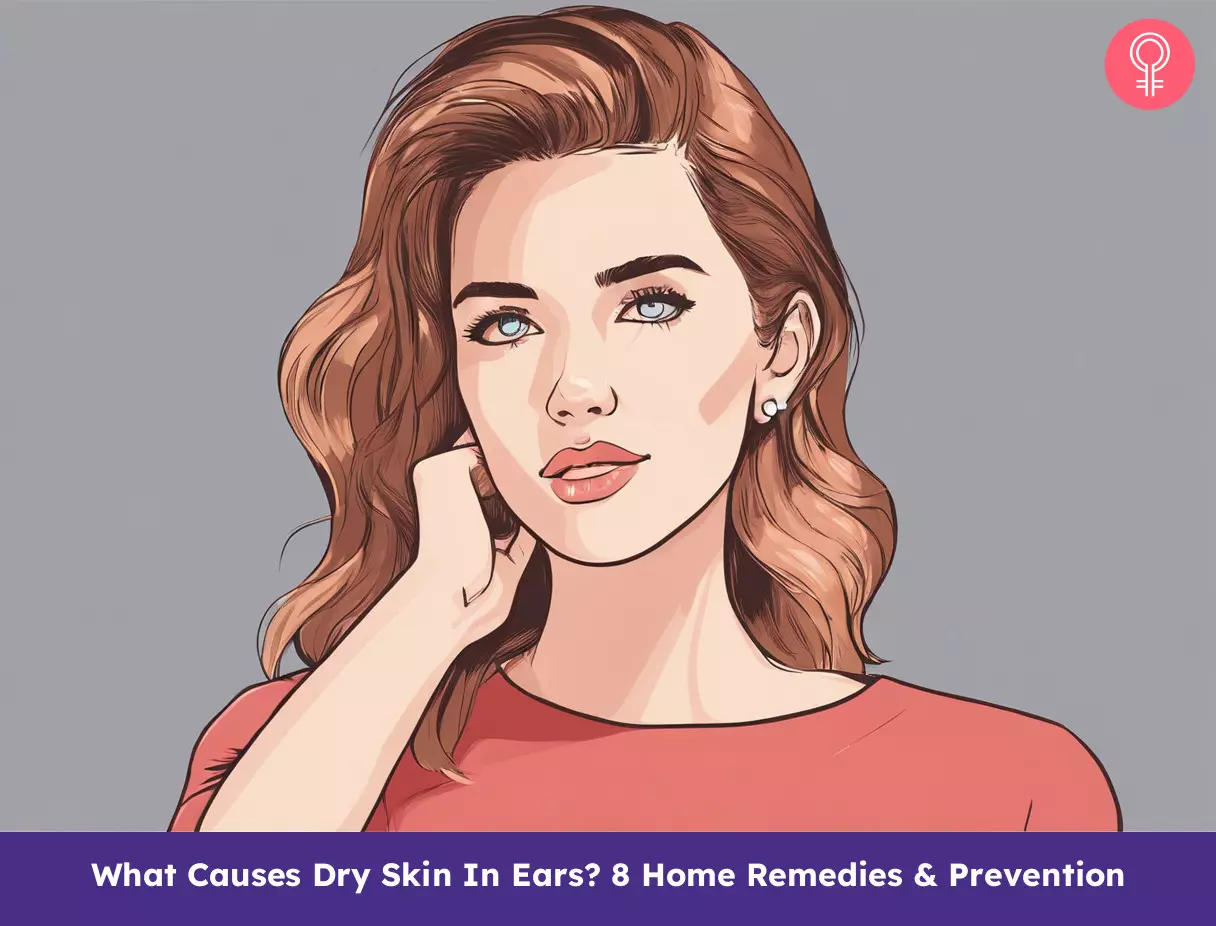
Image: Stable Diffusion/StyleCraze Design Team
Are itchy ears driving you crazy? Watch this video for expert advice on how to find relief by effectively addressing the underlying causes.
References
Articles on StyleCraze are backed by verified information from peer-reviewed and academic research papers, reputed organizations, research institutions, and medical associations to ensure accuracy and relevance. Read our editorial policy to learn more.
- Ear psoriasis
https://pubmed.ncbi.nlm.nih.gov/1511615/ - Eczema
https://www.ncbi.nlm.nih.gov/books/NBK538209/ - Multiple allergies to metal alloys
https://www.sciencedirect.com/science/article/pii/S1027811711000401 - Seborrheic Dermatitis in Skin of Color: Clinical Considerations
https://pubmed.ncbi.nlm.nih.gov/30681789/ - The effect of topical virgin coconut oil on SCORAD index transepidermal water loss, and skin capacitance in mild to moderate pediatric atopic dermatitis: a randomized, double-blind, clinical trial
https://onlinelibrary.wiley.com/doi/full/10.1111/ijd.12339 - Honey: A Therapeutic Agent for Disorders of the Skin
https://www.ncbi.nlm.nih.gov/labs/pmc/articles/PMC5661189/ - Pharmacological Update Properties of Aloe Vera and its Major Active Constituents
https://www.ncbi.nlm.nih.gov/labs/pmc/articles/PMC7144722/ - Dual Effects of Alpha-Hydroxy Acids on the Skin
https://www.ncbi.nlm.nih.gov/labs/pmc/articles/PMC6017965/ - Clinical efficacy of facial masks containing yoghurt and Opuntia humifusa Raf. (F-YOP)
https://pubmed.ncbi.nlm.nih.gov/22152494/ - Mustard and its uses in Ayurveda
https://www.academia.edu/2463151/Mustard_and_its_uses_in_Ayurveda - A review of applications of tea tree oil in dermatology
https://pubmed.ncbi.nlm.nih.gov/22998411/ - Tea tree oil attenuates experimental contact dermatitis
https://pubmed.ncbi.nlm.nih.gov/20865268/ - Effects of Turmeric (Curcuma longa) on Skin Health: A Systematic Review of the Clinical Evidence
https://pubmed.ncbi.nlm.nih.gov/27213821/ - Potential of Curcumin in Skin Disorders
https://www.ncbi.nlm.nih.gov/labs/pmc/articles/PMC6770633/ - AZADIRACHTA INDICA EXTRACT (NEEM) AS SKIN SOLUTION SOAP
https://www.researchgate.net/publication/340525802_AZADIRACHTA_INDICA_EXTRACT_NEEM_AS_SKIN_SOLUTION_SOAP
Read full bio of Dr. Farhaad Riyaz
Read full bio of Anjali Sayee
Read full bio of Swathi E





